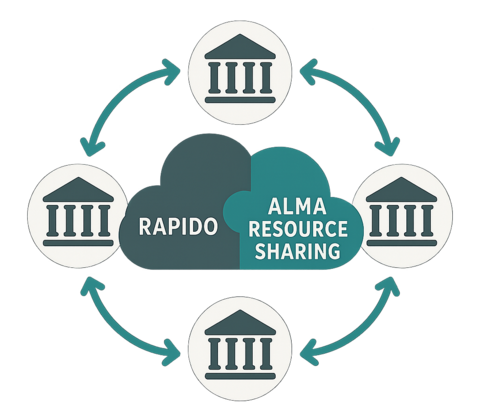
A Hybrid Pod is a connection between groups of libraries using either Alma Peer-to-Peer Resource Sharing (Alma RS) or Rapido for the purposes of Resource Sharing. The connection uses the infrastructure of both systems to ensure the requests are processed using standard workflows regardless of the system used, so Alma RS libraries will process requests using Alma RS workflows and Rapido libraries will process requests using Rapido workflows.
There is no change in service for patrons at an Alma RS or Rapido library. When patrons place a Resource Sharing request they don't need to decide to place a Hybrid Pod request separate from their traditional Alma RS or Rapido requests, they place a request as they normally would in the system used at their library. The requests will also appear on the patrons library account as normal, use the same communication methods as before, and are checked out the same way at the circulation desk.

